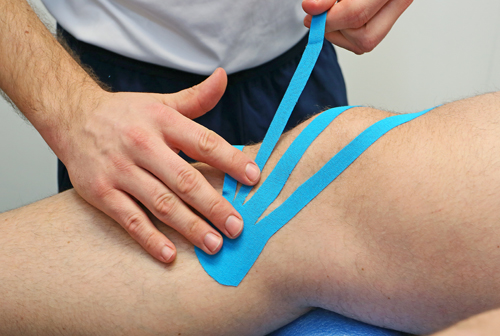Tennis Elbow
What is it?
Tennis elbow is a condition clinically known as lateral epicondylopathy that causes pain around the outside of the elbow. It often occurs as an overuse injury of the muscles of the forearm, although referred pain from the neck needs to be excluded by a trained medical professional.
Pain is often noticed when straightening the elbow, lifting or bending the arm, gripping or twisting the forearm. On rare occasions the pain can be constant, affecting rest and sleep.
When the muscles of the forearm are strained or affected by wear and tear, tiny tears of the tendons can develop, causing a reactive or degenerate reaction ultimately resulting in the pain experienced. Despite being called tennis elbow, the condition is rarely caused by this sport, with only 5 of 100 cases attributed to tennis.
The condition most commonly affects your dominant arm. If you experience bilateral symptoms it is even more essential to have the neck and nerves going down the arm cleared for any involvement in your condition.
What we do?
The physiotherapists at The Physiotherapy Academy are all fully trained to carry out a thorough assessment of your condition to ascertain the origin of the condition. They will then advise you on the cause of your condition, including any activity modifications that may be beneficial in the short term.
What the benefits are?
Early assessment and treatment of tennis elbow has more favorable outcomes. It can also aid a reduction in time away from occupational, everyday functional or sporting activities.
Physiotherapy can also reduce the risk of recurrence of injury or prevent injury in the first place if you think you are at risk of this type of injury.
How can we help?
Physiotherapy treatment can help improve your symptoms and speed up your recovery. However it is important to modify your activity for a period of time, ensuring that you rest from the activity that caused your symptoms initially.
The pain experienced may be eased by the application of an ice (cold) compress to the elbow. Simple analgesia may also reduce mild pain experienced.
Specifically physiotherapy has good evidence to help relieve the pain and stiffness felt with this condition. Physiotherapy can use an array of treatments to help regain full occupational activity and sporting participation including manipulations, soft tissue techniques, eccentric loading programs, acupuncture, stretching exercises and shockwave therapy. Furthermore our sports trained physiotherapists at The Physiotherapy Academy are all trained to make adjustments to your sporting technique if the initial cause of the condition was related to placing a strain on the elbow due to a poor sporting technique.
What should you do?
Initially you should avoid any aggravating activities as far as possible. If rest is not feasible, due to the aggravating factors being occupational activities, a support or tennis elbow brace may help to minimise the pain.
Visit a physiotherapist or your GP for a thorough assessment and confirmation of diagnosis. Call The Physiotherapy Academy now to ease those pains and return to normal activities as soon as possible.
To arrange an appointment or speak to a physiotherapist, call or email on:
Southend on Sea: 01702 521 042 or info@physioacademy.co.uk
Chelmsford: 01245 254 069 or chelmsford@physioacademy.co.uk





























